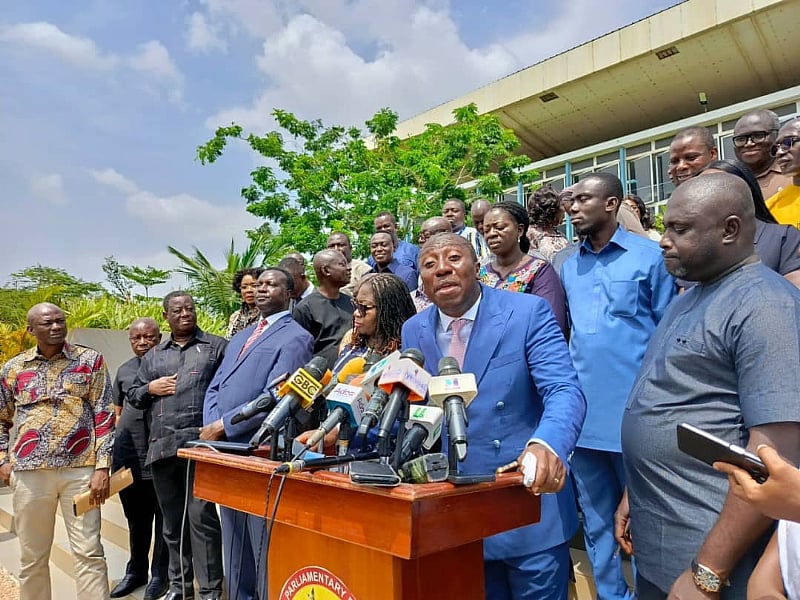Alexander Kwamina Afenyo-Markin, the Majority Leader of Ghana’s Parliament, recently addressed the indefinite adjournment of the House by Speaker Alban Sumana Kingsford Bagbin. The adjournment, attributed to a lack of business and the absence of the New Patriotic Party (NPP) Caucus, sparked immediate responses from Afenyo-Markin and other members of the party. In a statement made to the Parliamentary Press Corps, he expressed an intention to engage with the Speaker shortly, underscoring the need for collaboration to progress government business. He emphasized that further delays could hinder essential legislation and ultimately affect the approval of the budget for early 2025. Afenyo-Markin’s remarks highlight the current tensions within Parliament and the necessity for a constructive atmosphere.
The NPP’s call for the House session was documented in two formal requests sent to the Speaker, both aligned with constitutional provisions. Afenyo-Markin stressed that the agenda items sent to the Speaker should have constituted the House’s business, indicating their urgency and relevance. He articulated a desire to quell the prevailing partisanship that has disrupted parliamentary functions, suggesting that Parliament ought to be an arena conducive to national development rather than a platform for political strife. His comments reflect a broader call for unity among legislators, which he argues is essential for the legislative body to reclaim its function as a vital tool for governance.
Additionally, Afenyo-Markin’s statements implied ongoing conflicts regarding seating arrangements in the House, specifically the move by the National Democratic Congress (NDC) Caucus to the right side, typically occupied by the NPP. This physical shift symbolizes deeper political disagreements, primarily over perceptions of majorities in Parliament. The dispute stems from the Speaker’s declaration of four parliamentary seats as vacant due to breaches of constitutional rules, thereby altering the NPP’s standing. The implications of these changes extend to the legislative agenda and underline the precarious nature of party dynamics and affiliation within Parliament.
The Speaker’s declaration, which rendered the seats of four MPs vacant, arose from their attempts to contest the upcoming elections as independent candidates, thereby defying the 1992 Constitution. Affected MPs included representatives from both the NPP and NDC, highlighting the bipartisan issues surrounding party loyalty and electoral strategy. As the situation stands, the NPP’s strength has diminished to 135 members while the NDC holds 136, intensifying competition between the two parties. The legal ramifications of these developments were further complicated by the Supreme Court’s recent ruling, which enabled the vacated MPs to retain their parliamentary roles while awaiting a substantive decision.
Significantly, the developments in Parliament indicate a critical juncture for Ghana’s political landscape. The Supreme Court’s intervention underscores the judiciary’s role in interpreting constitutional matters that impact legislative functions. While the uncertainties surrounding the seating of MPs and partisan affiliations pose challenges for governance, Afenyo-Markin’s call to end “partisan politics” reflects a shared recognition of the importance of legislative productivity amid political turmoil. The upcoming budget and key bills, such as the Free Senior High School Bill, depend on both resolution of intra-parliamentary conflicts and robust participation from all MPs.
In conclusion, the political atmosphere within Ghana’s Parliament remains charged, with ongoing disputes rooted in party affiliation and procedural interpretations. Afenyo-Markin’s proactive stance, coupled with the judiciary’s involvement, signals a critical outlook for the legislative process. The outcome of impending discussions with the Speaker and potential reconciliation among party factions will significantly shape the effectiveness of government business in the lead-up to the elections. Only time will reveal whether the parties can set aside their differences and prioritize the nation’s legislative responsibilities over partisan interests, ultimately affecting the welfare of Ghanaians dependent on government initiatives.


